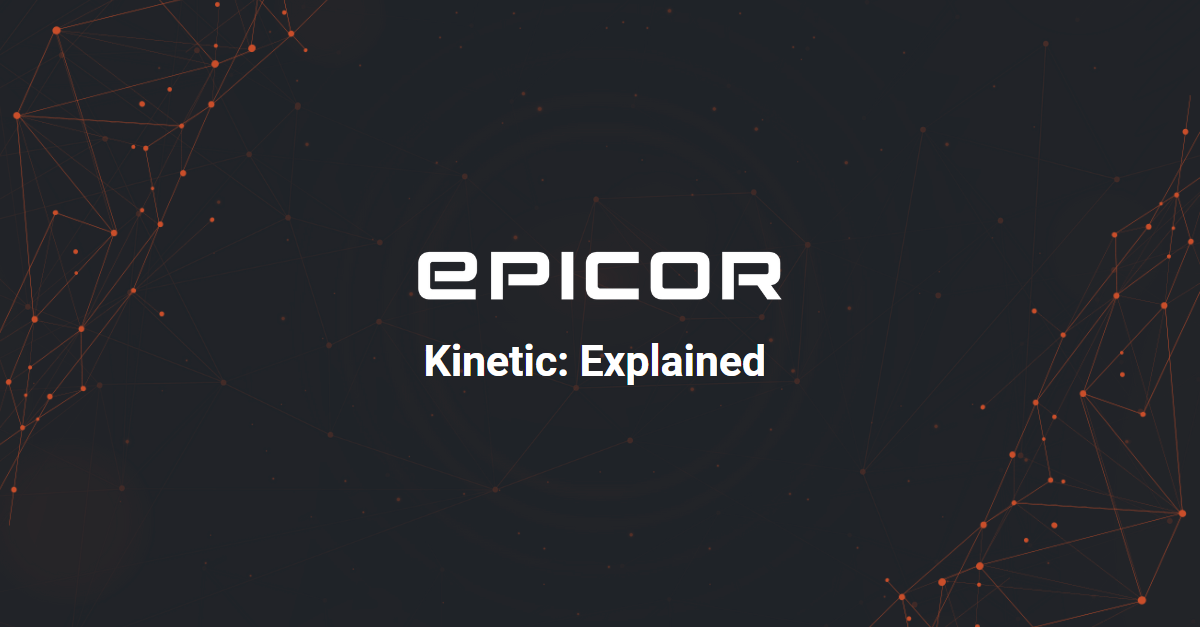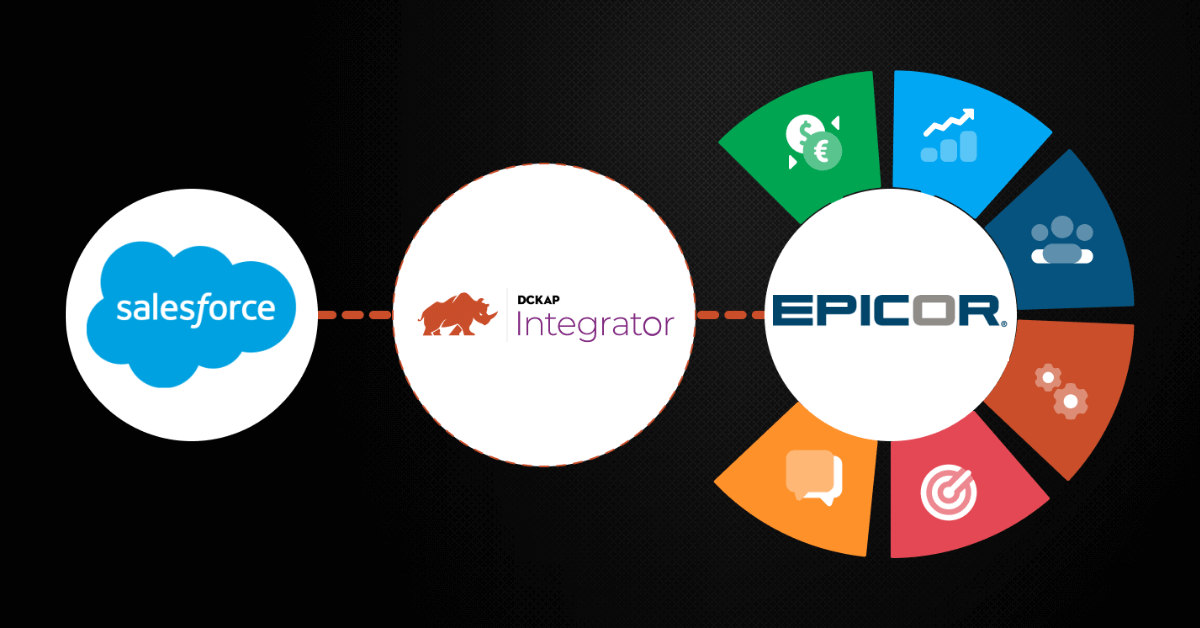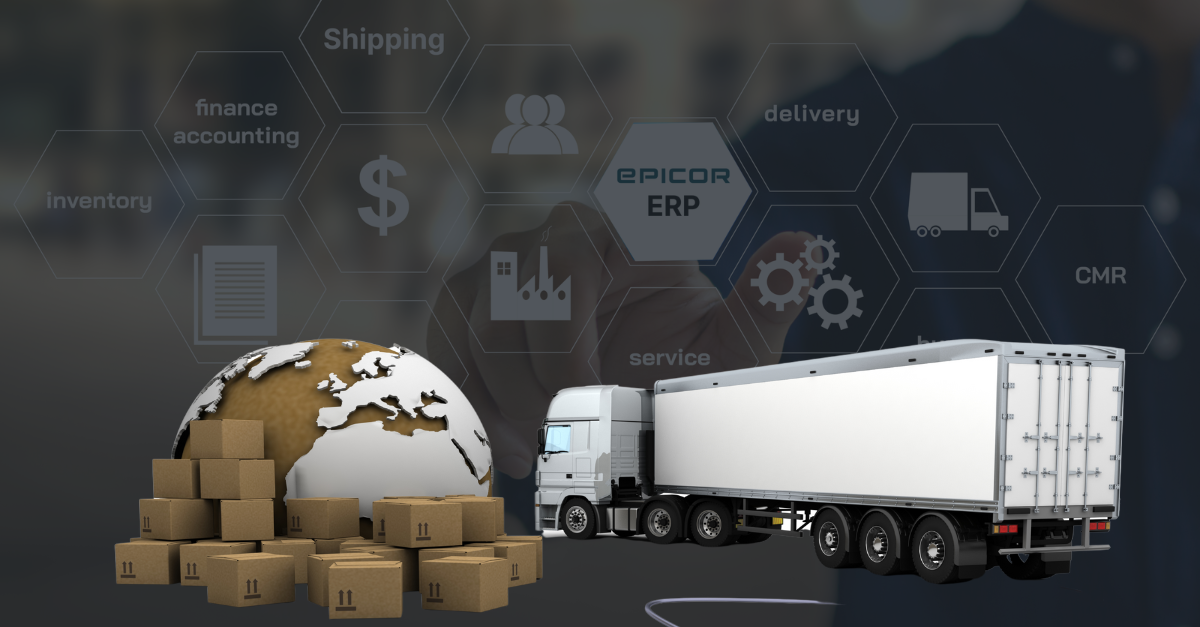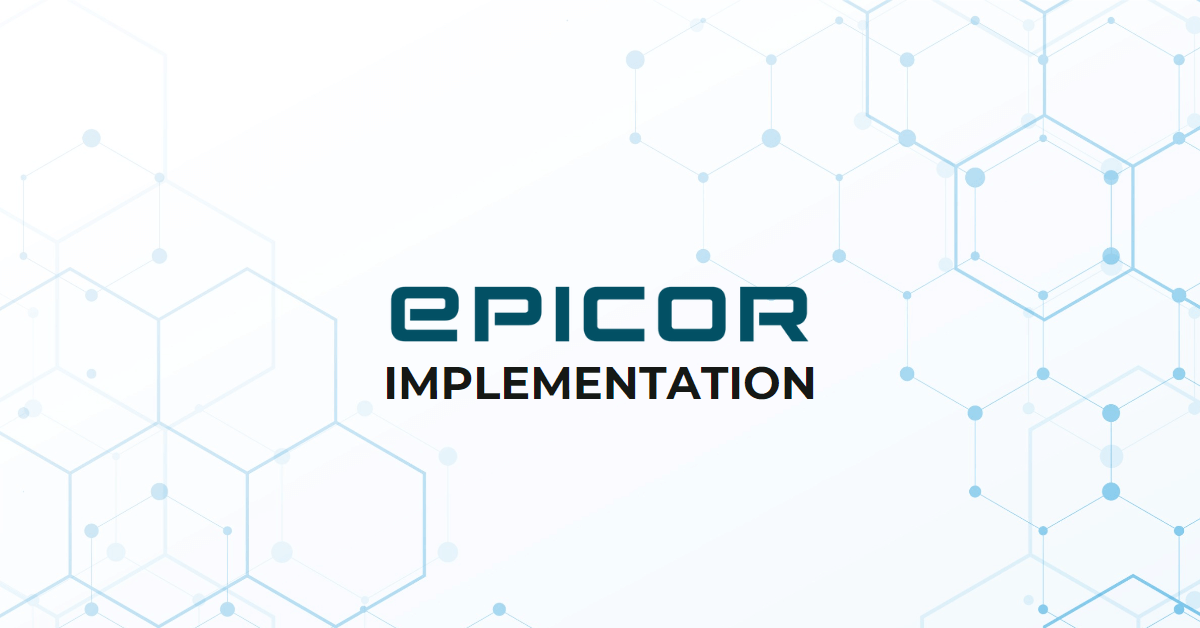Epicor ERP (enterprise resource planning) from Epicor Software Corporation has been a preferred choice of manufacturers for its ability to integrate business operations and reduce time-intensive workarounds. Epicor Kinetic, the cloud ERP solution, is equipped with a more modern and intuitive user interface so that companies can be ready for the future of manufacturing.
If you’re considering Epicor Kinetic, here’s a quick guide to the ERP software.
Contents
Epicor Kinetic ERP System: Target Users
Epicor Kinetic ERP has been primarily designed for manufacturers and captures the true power of cloud ERP.
It is equipped with various functionalities or modules, including supply chain management (SCM), product management, customer relationship management (CRM), project management, business intelligence and analytics, governance, risk, and compliance. It can be hosted either on-premise or on the cloud.
Epicor Kinetic: Key Features and Use Cases
Here’s how this new cloud-based Kinetic ERP software helps accelerate manufacturers’ growth, profitability, and digital transformation.
- Deep expertise in manufacturing industry-specific capabilities
- Intuitive UX
- Configurable
- Scalable
- Mobile, browser-based applications for powerful personalized experiences
- Ease-of-use
- Application studio configuration
- Easy access to integrated functionalities including APS (advanced planning and scheduling), CPQ (configure, price, quote), and CRM
- Real-time valuable information
- Expedited workflows and internal processes
- Data-driven decision making
- Low-code or no-code business intelligence
Supply Chain Management in Epicor Kinetic
In Epicor Kinetic ERP, the supply chain management module comprises a complete suite of applications to transform your supply chain. It includes inventory management, purchase management, sourcing and procurement, supplier relationship management (SRM), shipping and receiving, advanced material management, and warehouse management.
You can also access its order management, analytics, and forecasting capabilities to meet your dynamic customer needs.
Production Management in Epicor Kinetic
Robust production control can help you stay competitive in global markets with shrinking profits and increasing customer demands. Whether you are a make-to-stock, make-to-order, engineer-to-order, configure-to-order, or mixed-mode manufacturer, a production management suite can be a perfect solution.
Its module includes lean manufacturing, job management, advanced production, quality assurance, enhanced quality assurance, data collection, advanced MES (manufacturing execution system), and quality management system.
Financial Management in Epicor Kinetic
The financial management module consists of applications that help increase automation and compliance while providing valuable insights. It is built around global engines that effectively support financial control and management. Plus, you get access to real-time fiscal information.
This module includes general ledger, accounts receivable and payable, AP automation, requisition management, financial planning and analysis, data discovery, credit card processing, rebates, asset management, credit and collections, and tax automation.
Sales Management in Epicor Kinetic
This module equips you to create accurate estimates, fulfill orders, streamline the order-to-cash cycle, and much more. It also automated resource-intensive and complex processes for quoting, configuration, proposal generation, order entry, etc.
It includes order management, estimating and quotation management, sales order automation, point of sale (POS), EDI/demand management, dealer network portal, Configure Price Quote (CPQ), and Commerce Connect.
Reporting and Business Intelligence
The business intelligence and analytics module for Kinetic is equipped with trackers, dashboards, and data visualization tools. This module also includes predictive analytics, descriptive analytics, diagnostic analytics, and operational reports.
Master Data Management in Epicor Kinetic
With ever-changing regulatory compliance, the emergence of service-oriented architecture (SOA) and Mergers and acquisitions (M&A) have necessitated the creation and maintenance of master data. Epicor’s master data management (MDM) module can help you meet multisite and multi-company regulatory requirements and maintain consistency in real-time operations. You also get a consolidated view of multi-company transactions.
Also read: Epicor Implementation Explained
Epicor Kinetic: Integration and Extensibility
You can connect third-party cloud, on-premise, or SaaS applications to Epicor Kinetic.
Here are some methods for Epicor Kinetic Integration:
Custom integrations using APIs
Usually, applications have APIs or application programming interfaces. These APIs enable two systems ti communicate or exchange data with each other. You can develop your own integrations to match the Epior Kinetic API. Although this method gives you flexibility and the power of customization, it is very resource-intensive. You would require API documentation and developer who are technically adept.
Vendor-built integrations
Also known as native or out-of-the-box integrations, some vendors may provide integration solutions for their products. However, these integrations are relatively inflexible and only include common use cases, resulting in limited customization.
Epicor Integration Cloud
It is an API integration platform that can connect CRM, e-commerce, analytics, HR, 3PL/ logistics to Epicor. The supported data formats include
- JSON
- XML (WSDL, XSD)
- All EDI (X12, EDIFACT, TRADACOMS, XML, CICA, HL7, etc.)
- Flat Text Structures
- Hierarchical Text Structures
- EDI Documents, etc.
Epicor Kinetic Connector
The Jitterbit Harmony Epicor Kinetic Connector is used to configure the connection to Epicor Kinetic. The connector uses the Epicor REST API available from https://<epicor-host-name>/Server/api/help/
Also, check out Epicor Commerce Connect.
Integration Platform as a Service (iPaaS)
Integration Platform as a Service (iPaaS) such as DCKAP Integrator are emerging as a preferred choice when it comes to seamless integration. It gets rid of costly custom integrations as well as inflexible native integrations. Additionally, an iPaaS solution helps businesses create automated workflows, connecting different applications without hardware installation.
Here’s how DCKAP Integrator simplifies Epicor Kinetic integration:
- Easy to use
- Drag-and-drop functionality
- Pre-built integration templates
- Low-code
- Quick deployment
- Limitless connections and much more!
Top 8 Things to Consider When Choosing an ERP System for Your Business
Before you make any decision, have an ERP strategy in place. This will help you make informed choices on what modules you need, related infrastructure requirements, and other implementation elements based on your business goals.
When making a choice, here are the top considerations.
Agility
When choosing an ERP provider, don’t miss out on business agility. As your business grows, it is not always possible to predict the future direction. Hence, you need a system that will change and adapt to your changing needs.
Cloud ERP
Make sure your ERP software is from a trusted and proven cloud vendor. This will help create a system that is efficient and secure, giving you the much-needed competitive advantage.
Scalability
An ERP with scalable architecture can grow with your business. As a general rule of thumb, the fewer the customizations in your ERP system, the better it is for your business.
Innovation
You may wonder about this point. However, innovation is the key to your future growth. Go for an ERP provider who understands the importance of innovation and its associated risks, and helps you strike a balance. Additionally, you can check whether your ERP offers collaborative tools to drive innovation among your employees, suppliers, customers, etc.
Ease of use
Navigating through complex systems is not only challenging for your team but also a waste of time. Hence, when making a choice, make sure your ERP software has a user-friendly interface, is easy to use, and helps improve productivity.
Functionality
Make sure to check your ERP system aligns with your ERP strategy and has the capabilities that you require to achieve your business goals. Secondly, assess its performance in terms of reliability, integration with other applications or systems, speed, etc.
Implementation resources
Extensive learning resources are a key part of the hassle-free implementation. Especially, in cloud adoption, make sure your ERP provider offers role-based learning resources. Moreover, make sure you can easily access videos, walkthroughs, and articles.
Deep industry knowledge
A good track record of industry expertise is always a plus point, especially if the industry you work in is niche or deeply specialized. Additionally, industry expertise can help bring in new insights and perspectives for your ERP system.
Final Words
Epicor Kinetic ERP is a tightly integrated software solution specially designed for manufacturers. It powers your business with a variety of modules such as customer relationship management (CRM), supply chain management (SCM), advanced planning and scheduling (APS), product lifecycle management (PLM), advanced manufacturing execution system 9MES), business process management (BPM), and others.
Maximize the potential of your Epicor Kinetic ERP with the right integration solution and practices.
FAQs
What is Epicor?
Epicor is an enterprise resource planning (ERP) software company that provides integrated solutions for manufacturing and distribution businesses to manage and automate their core processes. Epicor Kinetic is one such solution, with others including Prophet 21, Prelude and Epicor Eclipse.
What does Epicor Kinetic do?
As an ERP software, Epicor Kinetic helps businesses manage their resources. It offers features including supply chain management, financial management, inventory management, quoting and sales, human resource management, and more.
Is Epicor Kinetic cloud-based?
Yes, Epicor Kinetic is a cloud-based ERP solution. It is designed to be deployed and accessed through the cloud, providing users with the benefits of scalability, flexibility, and accessibility from anywhere with an internet connection. With Epicor Kinetic, organizations can leverage cloud technology to streamline their operations and enhance productivity.
How much does Epicor Kinetic cost?
Epicor is not public about its pricing model for Epicor Kinetic, which can be influenced by the organization’s size, number of users, functionalities, and more. Learn more about Epicor pricing here.
Do I need an ERP software solution?
If you are still on the fence about whether you should go for ERP software. Here are more reasons to convince you.
- Although your work may be getting done with basic tools, if they limit your market growth and expansion, then it is time to go for an ERP system that is flexible enough to align with your business growth.
- Disparate, legacy systems may not be compatible with each other. For instance, your old accounting software is not working well with your new HR system, resulting in a waste of time and resources to ensure consistent data flow between the two.
- If you are not able to offer an exceptional customer experience, then it is high time to look for ERP systems that fulfill your team’s needs. It is important that you equip them with the right tools so they are able to meet customer needs and expectations




